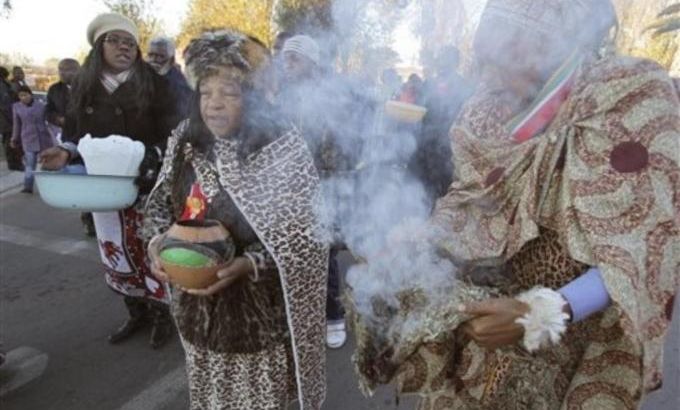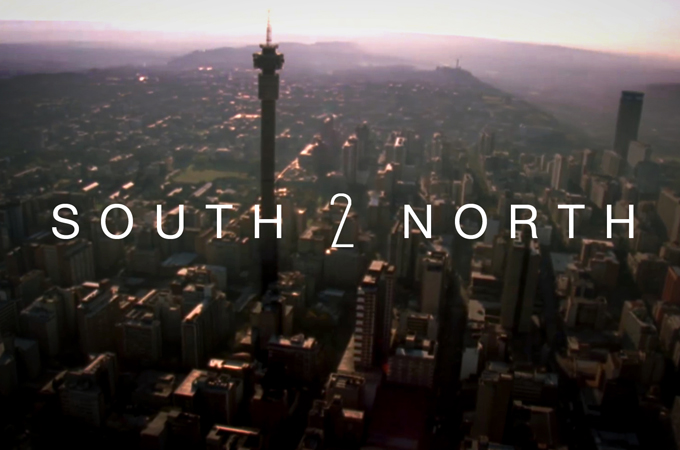
Cultures of ‘magic’ and healing
Can traditional healing and ancient mystical customs exist alongside modernity and Western medicine?
| No subject is off limits in the first ever global talk show hosted from Africa in which Redi Tlhabi talks frankly to inspiring and intriguing personalities from across the world. |
Historically, traditional medicine has been frowned on by modern Western medicine. While some swear by ancient practices, some cultural traditions have become increasingly dangerous. Already more than 20 young men have died in South Africa after undergoing traditional Xhosa circumcision ceremonies.
This week, South2North discusses healing, traditional medicine and ancient cultural customs with three guests:
Nokulinda Mkhize a traditional healer, known in South Africa as a sangoma, who speaks about how she reconciles her work as a healer with her modern life: “I can’t explain how [I became a sangoma] because I was brought up like this. I’m a young, middle-class black South African, private school educated. My parents are both doctors, I come from privilege and I am comfortable in that world as I am comfortable in this world, where I throw bones and I have to slaughter [animals] for people sometimes and I deal with ancestors, and this is what I do for a living.”
Dr Vijay Mittal is a well-known ayurvedic healer from the Himalayas, North India. In 2003 he was invited to South Africa to share his knowledge on meditation and natural healing. He is also involved in a research project on medicinal plants and has his own practice in South Africa.
Mittal explains that while modern medicines that treat infections and other complex diseases are needed, ayurvedic medicine in largely preventative because of modern stresses that are making us ill: “These days people are getting sick because they are not sleeping well. They are stressed all the time. So unless we address that particular thing we cannot reduce the dependency on medicine.”
Mayenzeka Baza made a documentary for Al Jazeera’s People and Power called Ndiyindoda: I am a man. It opens a window onto the closed world of ritual circumcision of boys from the 10 million strong Xhosa tribe of which former South African President Nelson Mandela is the most prominent member.
As a Xhosa man himself, Baza felt the need to stand up against the tradition that causes the death of many young boys every year. There have been over 20 deaths in South Africa this year alone, caused by infections and illness, and many others have to deal with genital injuries for the rest of their lives. The tradition is a transition to manhood, and to not go through it means one remains a ‘boy’ in the eyes of the culture.
“The whole initiation is supposed to really transform a boy into a man. So when you go to the bush, there is supposed to be men who are supposed to mentor you, to be responsible, to take good care of you. Once you leave there, there is a whole process where your elders come and talk to you about what it really means to be a man,” explains Baza.
| From the producers desk: |
Senior producer Pat van Heerden writes:
The UN and its partners are at war in the DRC attempting to create peace in the Great Lakes region. Recently the M23 rebels agreed to sign a peace deal, a step toward ending the devastating two-decade long conflict.
The UN’s intervention force was breaking news when we decided to do this story. We invited three people intimately involved with the situation in the Congo: DRC ambassador Bene M’Poko who vehemently defends President Kabila’s present reign in the Congo, Jason K Stearns who led a special UN envoy to investigate the violence in the Congo still presently working in the eastern conflict area and a leading business man and civic leader Bernard Katompa, opposed to the present DRC government and who has his own ideas as to how to rehabilitate the DRC.
Their different perspectives created a passionate argument about the future of the DRC and point to the central issues that will be fought over in the coming 2016 DRC elections.
South2North can be seen each week at the following times GMT: Friday: 1930; Saturday: 1430; Sunday: 0430; Monday: 0830. |
